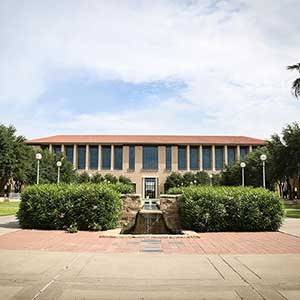TAMIU Urges Student Caution with National ‘Phishing’ Financial Aid Scam

Texas A&M International University (TAMIU) is advising students and financial aid recipients to be extra cautious in light of a ‘phishing’ financial aid scam that is having nationwide impact. Phishing is the fraudulent practice of sending emails seeming to be from reputable companies that encourage individuals to reveal personal information, such as passwords and credit card numbers.
“Multiple institutions of higher education (IHEs) have reported that attackers are using a phishing email to obtain access to student accounts via the IHE student portal, “ said Laura Elizondo, TAMIU director of Financial Aid, “this is a malicious phishing campaign that may lead to potential fraud associated with student refunds and aid distributions.”
Elizondo said that Federal Student Aid (FSA),an office of the US Department of Education, is monitoring the situation nationwide. If successful, the student’s federal student direct deposit is redirected to the attacker. With the semester just starting last week, this could be disastrous for affected students.
“We urge that students who are contacted by phone, email or other means by someone claiming to provide you with information about your financial aid, to simply hang up. In many instances the call appears to originate locally and the caller will try and get you to provide details about student loans, or other personal financial information. Do not provide the caller with any additional information. You can report this to the Laredo Police Department, providing them with the phone number and any name that might have been associated with the call. The TAMIU Financial Aid office will not call you and ask you for your personal information or request it by email.
“If TAMIU students are ever in doubt, please hang up and visit or call our offices at TAMIU. We can provide students with a secure and safe response specific to the student’s status and respective of all confidential information,” she continued.
An FSA warning issued last Friday warns that it believes the attackers are practicing and refining their scheme on a smaller scale now and “this will emerge as a prominent threat against IHE’s during periods when FSA fund are disseminated in large volumes.”
“Again, we urge all TAMIU students to exercise caution. These attacks, if successful, can take away student resources and severely impact their educational progress. Our offices are available to help students address their needs in person in the Senator Judith Zaffirini Student Success Center, room 214, at 956.326.2225, and by email at financialaid@tamiu.edu,” Elizondo concluded.
Additional information to help prevent financial aid scams is located at: